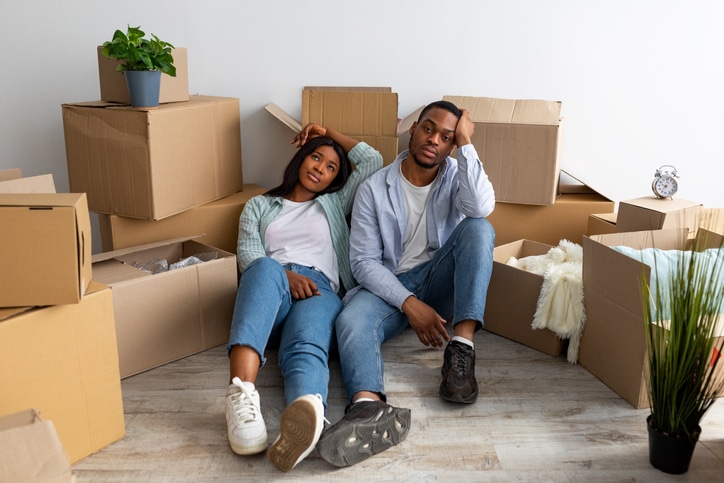Source: US News —
Moving to a new home can seem simple in the abstract – you just have to pack, get everything in the moving truck and unpack in your new place.
But we all know it’s not so simple. Packing always takes longer than expected, requires more boxes, you have to go through the process of closing utility accounts and opening new ones and even on that last day, you’ll discover a drawer, cabinet or closet you missed that somehow holds both the most useless and most important items to your life. And you still have to find a space for everything in your new home.
“Even under the best circumstances – you’ve hired professional movers and you’re excited about where you’re moving – it’s still so stressful,” says Melody Warnick, author of “This Is Where You Belong” and “If You Could Live Anywhere,” in Blacksburg, Virginia.
The stress and anxiety surrounding your move to a new home can leave you sleep deprived, distracted from other tasks and unwilling to take proactive steps that can help in the process of getting yourself and all your belongings from one place to the next.
We’re breaking down why you’re so stressed about your move, some of the larger issues that may come with moving to a new home and how to help ease that anxiety both during and after your move:
If the building anxiety or stress from an upcoming move has you feeling like you’re not handling the change well, take comfort in the fact that the feeling is pretty universal.
“The thing about anxiety is we often want to have this element of control, we want to have this element of predictability, and start to finish, the moving process is outside that,” says Lauren Cook, a clinical psychologist based in California.
Average stress after a move is higher than before, according to a study published in Urban Science in October 2022 titled “Measuring the Stress of Moving Homes,” by Ka-Shing Cheung and David Wong of the Department of Property at the University of Auckland. The study examined stress levels of individuals between the ages of 19 and 54 living in urban Auckland, New Zealand, between 2013 and 2018.
The study found that those who moved more than once in the five-year period experienced higher stress levels than those who only moved once. Stress levels appeared higher in subjects experiencing housing insecurity, which also makes them predisposed to more frequent moving events. “While acute stresses seem to result in one-off movements, chronic stresses result in more frequent movement,” Cheung and Wong said in the study.
Whether this is your first move in many years or the second in a year, the stress you feel in the lead-up to moving day and after is very real, and can make the entire process feel more difficult.















